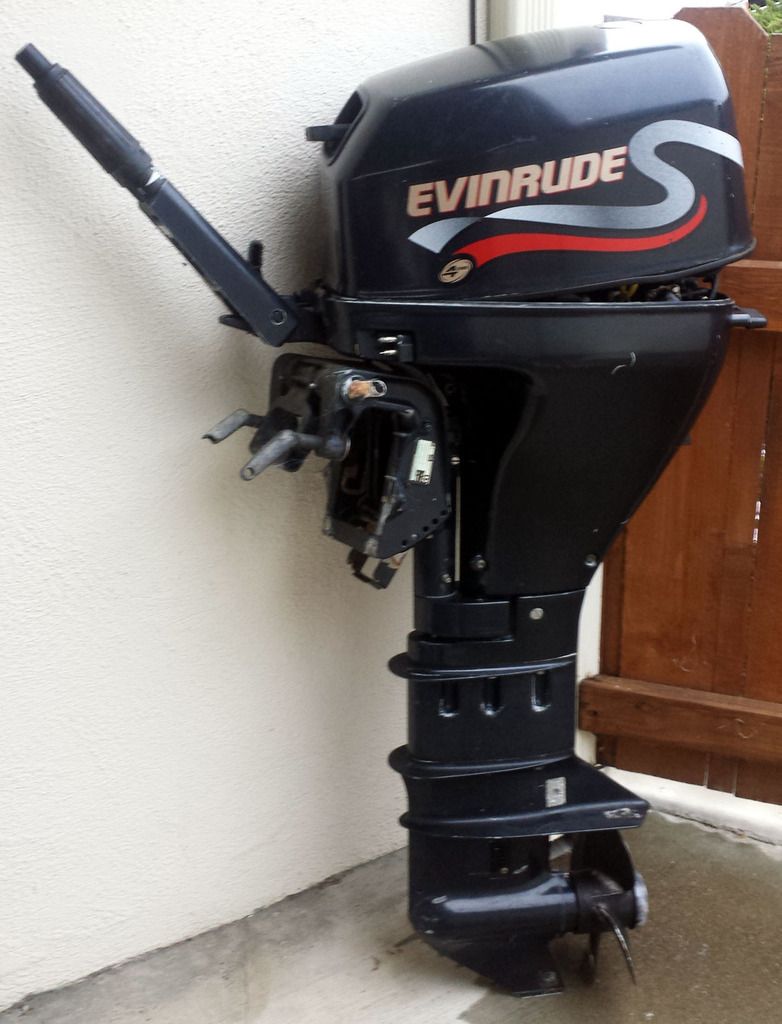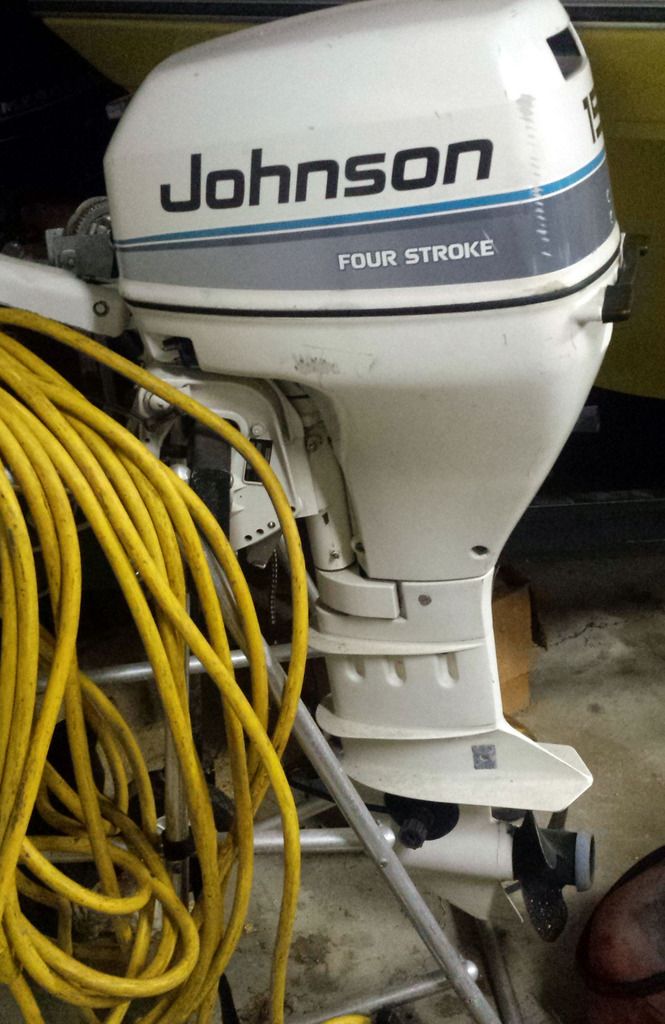Home › Forum › Ask A Member › Help on 1996-2000 OMC 9.9/15 HP FOUR Stroke
- This topic has 8 replies, 4 voices, and was last updated 9 years, 9 months ago by
fleetwin.
-
AuthorPosts
-
April 10, 2016 at 2:08 am #4005
Hi all….
I now have TWO OMC 4-Stroke 15hp engines….circa 1996-2000. One is a Johnson (Leaking Bottom Crank Seal) and the other is an
Evinrude (some sort of Ignition Module Failure)These engines are (I believe) OMC’s first venture into 4-Stroke….and were manufactured right before OMC went bankrupt.
I need a service manual for them; can anyone help?
Specifically I need to know if I can replace the bottom crank seal without splitting the case…..and then I need to know how to circuit check the ignition system to determine which of the crazy-expensive ignition components has failed.
Can anyone help?
J15FRLEDR
E15RL4EEBThanks
April 10, 2016 at 2:17 am #34613I don’t have a diagram but if they are anything like the earlier 9.9/15 horse motors, the lower crank seal is in a separate carrier which can be easily removed for servicing the seals.
April 10, 2016 at 2:51 am #34615Well first the Johnson is a ’96 year model & the Evinrude is a ’99 year model not that that changes much. Neither motor has a seal holder at the bottom of the powerhead. Not sure if this makes it impossible to change the bottom crank seal without disassembly of the block? Call out JohnnyRude200? He has the manuals I sent him on these engines. Should be able to look it up for you.
Dan in TN
April 11, 2016 at 3:12 pm #34685OK, well first how do you know the lower crank seal is bad??
The ignition system is a strange one, you will see only one primary lead going to a dual fire coil. In other words, there is waste spark on both cylinders. This cost cutting measure led to engines that like to occasionally backfire during acceleration and some other bothersome running qualities. So, be sure you actually have an ignition problem before trying to diagnose engineered in headaches. Don’t have much experience with these engines, so I don’t remember if the flywheel has an "encoder ring" underneath to set timing, or if the flywheel magnets take care of timing.
Needless to say, start with the basics, such as stop switch elimination, connections, and ground tests.
Replacement parts for these are hard to find and expensive, fortunately you have another engine’s part to help with diagnosis…April 11, 2016 at 5:06 pm #34689One thing four strokes do like to do is put fuel in the oil. This can come from a variety of things, but usually starts from a cold running engine. Most manufacturers called it "motors making oil" during the early years. Yamaha calls it "oil dilution" now on their four strokes. If you do have a bottom seal out if most likely is caused by being bathed in fuel for an extended time. If the seal has seen ethanol blended fuel just that much worse. You may need to look for other problems while you are in changing the seal if you have to go that far? Ring wear, bearings, etc? If the oil was diluted far enough lubrication goes away in a hurry! All four strokes suffer from this and a cure has been tricky. Just running the motor hotter is difficult because of deposits (salt) cooking out in the water jackets. It’s not like a radiator on your car! Just something else to think about before you go 4stroke crazy. Of course they are much more complicated and costly to repair as people are starting to find out. Our old/ antiquated 2strokes are looking better every day!
Dan in TN
April 11, 2016 at 6:53 pm #34695Well fleetwin…I "suspect" the bottom seal is bad because the person who gave me the motor said so…..and because when I run it….significant oil starts seeping out. But; I don’t really "know" that it’s the bottom seal that has gone bad.
Your explanation of fuel in the oil makes a lot of sense; I had never really thought about that up until now.
Both of these motors are so sweet looking cosmetically; I hate to just part them out because of that. I personally am not interested in running them; partly because I have a hard time picking them up; BOY ARE THEY HEAVY!
April 11, 2016 at 8:23 pm #34699OK, well it looks like the lower seal is pressed into the block halves:
http://www.marineengine.com/parts/johns … Crankshaft
I don’t see any housings that house the seal, it appears to be held between the block halves.
Tell us more about "significant oil starts seeping out"…. Are you running the engine on a boat, or on a flushette? Does the oil look burned/grey, or fresh? Could it possibly be gearcase lube? Is the engine smoking? Any possibility the oil filter is defective and the oil is just running down the exhaust housing?
Again, I have very limited experience with these engines. I did have a powerhead off once, and was concerned about the questionable sealing surfaces between the crankcase and oil pan. I would proceed very slowly with this project, just don’t want you to open up a can of worms. Looks like the lower seal is NLA also. You might try removing the gearcase to see if the driveshaft tube, impeller housing is covered in oil.
Perhaps you can run the engine briefly with the gearcase off/no water, maybe you might be able to pinpoint the problem looking up into the exhaust hsg with a light afterwards….
I guess I should have asked about oil level to begin with, be sure it is not overfilled. Perhaps the engine was improperly layed down causing oil to enter the cylinders. Does the oil look clean? No signs of water or contaminants?April 12, 2016 at 2:39 pm #34729Good suggestions fleetwin; I only ran the motor on muffs shortly after I acquired it last year…..and it did indeed have oil oozing out up high; I will have to run it again and pay better attention to the filter and other possibilities. The oil looks fresh (on the dipstick) and the motor purred like a kitten when it was idling on the muffs….
April 12, 2016 at 10:44 pm #34745Sure hope it works out to be something simple, just don’t want you to dig into this thing needlessly….
-
AuthorPosts
- You must be logged in to reply to this topic.



